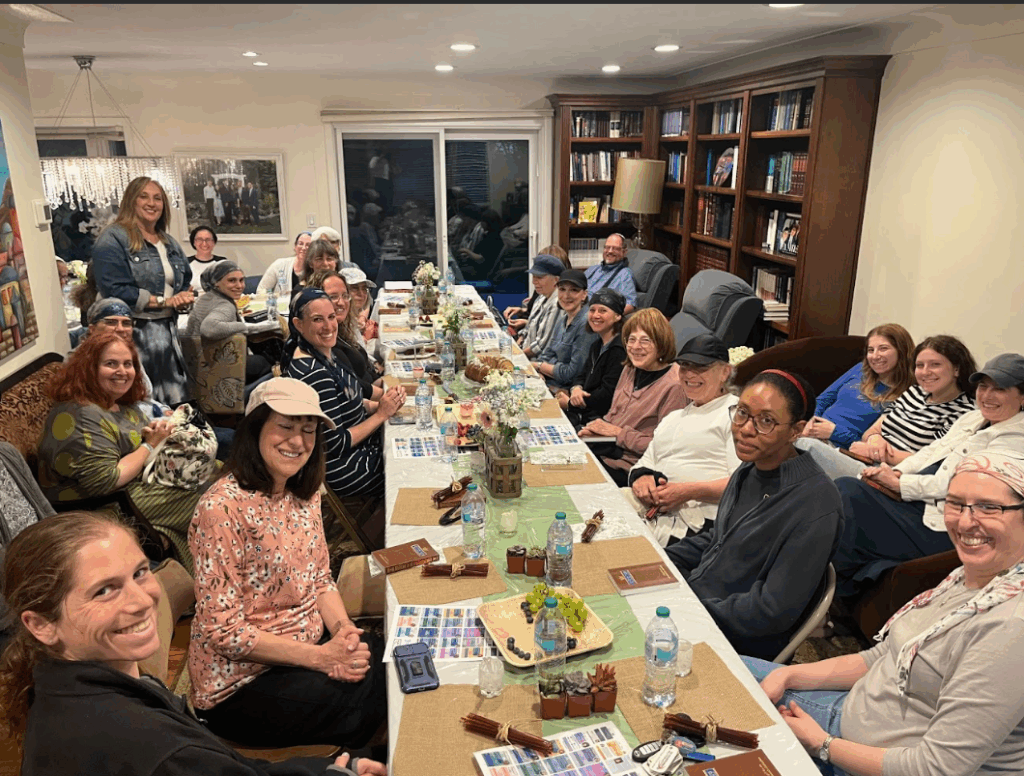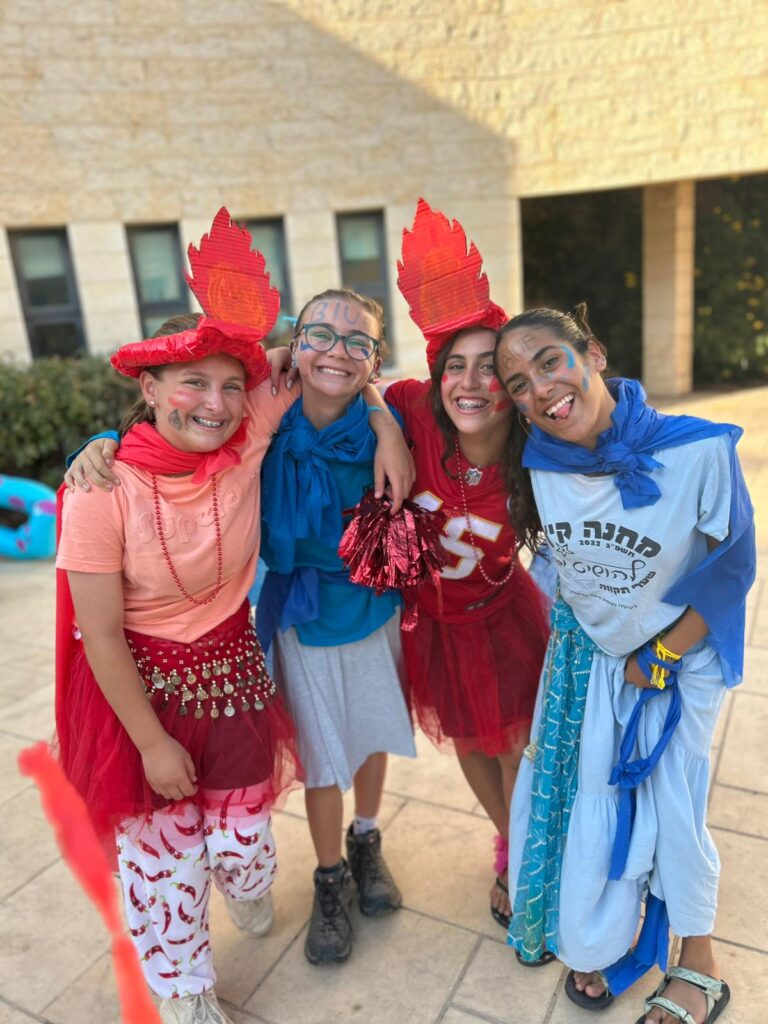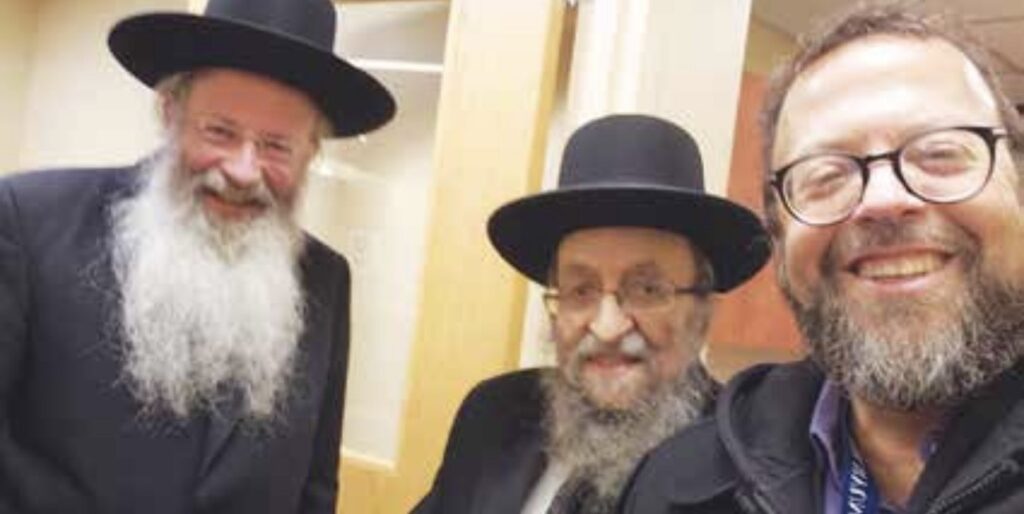The OU Women’s Initiative Awards Grants For Creative Tehillim Programming Nationwide
The OU Women’s Initiative, a division of the Orthodox Union that has galvanized women worldwide through its widely popular Torat Imecha: Nach Yomi program, is taking the study and appreciation of Tehillim to new heights with a grant that empowers communities to create their own Tehillim-centered programming—deepening personal and communal engagement through this powerful sefer.
Founded in 2017 by Rebbetzin Dr. Adina Shmidman, the OU Women’s Initiative creates and promotes programming that nurtures Torah study, community leadership, and the spiritual, personal, and professional growth of women of all ages. In 2020, the department relaunched the OU’s Nach Yomi program—originally established in 2008 under the leadership of OU Torah Content Editor Rabbi Jack Abramowitz—under the Torat Imecha banner, establishing a dedicated platform for women educators and learners to share insights on Nach. Now in its third cycle, Torat Imecha Nach Yomi has engaged more than 15,000 women from 28 countries and 38 U.S. states to date.
In February 2024, Nach Yomi participants began learning Sefer Tehillim, and the Women’s Initiative launched Transforming Tehillim Together, a grant to fund innovative and interactive women’s Tehillimprogramming in communities across North America.
“Tehillim is the heartbeat of our people,” says Rebbetzin Dr. Shmidman. “It’s where we turn in joy, in crisis, and in gratitude. Of all the sefarim in Nach Yomi, Tehillim uniquely speaks to the collective and personal soul of Am Yisrael. At the OU Women’s Initiative, we believe in building communities from within—giving women the tools, encouragement, and platform to design meaningful Torah-centered experiences that inspire others. As we approached this sefer in the Torat Imecha Nach Yomi cycle, we saw an opportunity not just to learn the words of Dovid HaMelech, but to bring them to life—to encourage women to take those timeless words and make them resonate in today’s world.”
Awarded to five deserving applicants, the $1,000 grant aims to energize communities that prioritize women’s programming, and create women’s leadership opportunities in Orthodox synagogues and community life by creating impactful leadership opportunities. Designed to deepen women’s connection to, and engagement with, Tehillim, the initiative also seeks to inspire creativity and innovation through in-person, experiential spiritual gatherings that strengthen communal bonds. The grant reflects the Torat Imecha Nach Yomi’s guiding theme for the study of Sefer Tehillim: “Go from Saying to Praying”.
“This motto captures the essence of what we hope to inspire,” says Rebbetzin Shmidman. “Too often, Tehillim can become something we recite without fully understanding it. This initiative was a call to deepen that connection—to transform routine into relationship. It’s an invitation to take the words we’ve said countless times and truly make them our own, with kavanah, with emotion, and with meaning.”
Of the 40-plus submissions from across North America, the OU Women’s Initiative prioritized proposals with the potential for significant communal impact and the ability to serve as replicable models for other communities. Women’s Initiative Community Program Coordinator Emma Katz was impressed by the scope of applicants’ creativity.
“Many of us are used to approaching Tehillim in familiar ways—reading, reciting, and incorporating it into our davening,” she says. “What stood out in the applications was the integration of various media; people brought Tehillim to life through dance, music, theater, and art, as well as intergenerational workshops and community learning circles, while thoughtfully adapting their programs for different age groups. What moved me most was that so many applicants said, ‘Even if I don’t receive the grant, I’m happy to share my idea with others in order to help people to connect more deeply to Tehillim.’ That kind of passion and selflessness was truly inspiring.”
The OU Women’s Initiative congratulates the following winners of the Transforming Tehillim Together grant:
Jennie Berkovitch, Chicago, Illinois: On behalf of her shul, Kehilas Nachlas Boruch (Heritage Russian Jewish Congregation), Jennie proposed a new program titled Bridging Hearts and Voices: A Transformative Tehillim Experience for Our Community. The two-part series, timed to coincide with Rosh Chodesh Sivan and Tammuz, featured inspiring speakers, guided learning on the historical and spiritual significance of Tehillim, and practical tools for personalizing one’s prayers. The program also included Russian-language booklets geared for the primarily Russian-speaking congregation, which explore key chapters of Tehillim, offer reflections, and suggest practical applications for daily life.
Leora Blank, Woodmere, New York: Leora is a volunteer at The Manchester, a Jewish learning center in the Five Towns which focuses on personal growth and meaningful connections through in-depth Torah study and activities. In Elul, Leora will spearhead the center’s first chavrusa-style initiative, Transforming Tehillim: ‘Chavrusa-thon’ Experience at The Manchester, an engaging workshop designed to foster a deeper connection to Tehillim through approximately three hours of text-based immersive study b’chavrusa and guided learning facilitated by a renowned educator. The event served as a pilot for a potential new learning model at The Manchester.
Rebbetzin Faith Blau, Cleveland Ohio: On behalf of the Green Road Synagogue where she serves as the rebbetzin, Rebbetzin Blau proposed Bringing Tehillim Home, a five-part series for women of all ages featuring renowned guest speakers—including author and Tanach teacher Rabbi Yitzchak Blau—who delivered shiurimon each book of Tehillim, followed by a breakfast and dessert reception at the final session. Participants were also invited to an upcoming recap session where they discussed which sefer they enjoyed and why.
Miriam Carr, Portland, Oregon: Miriam is the program director at Congregation Kesser Israel, and proposed a series coinciding with Elul, Sukkot, Cheshvan, and Chanukah, in which Tehillim will be explored via modalities including art, meditation, dance, and journaling, at professionally-moderated sessions. The program aims to engage both current members, as well as unaffiliated Israelis and Jews from the greater Portland area. Miriam hopes participants will appreciate the many ways to relate to Tehillim, and find a meaningful message in each psalm.
Alissa Zeffren, Chicago, Illinois: Alissa is the director of NILI, the Chicago Institute of Women’s Learning, at Yeshiva University Torah Mitzion Kollel of Chicago. Her three-part Art & Soul series will encourage women of all ages to deepen their relationship with Tehillim, tefillah, and Hashem, using art as a medium to depict themes and imagery in Sefer Tehillim. Each participant will create her own Tehillim portfolio including notes and art on the various perakim, and themes covered in the series.
Rebbetzin Shmidman says the OU Women’s Initiative was thrilled to launch this grant as a way to amplify the messages of Tehillim through creative, grassroots programming.
She reflects, “It’s incredibly powerful to see how individuals, when given the space and support, can take the deep emotional and spiritual resonance of Tehillim and bring it to life in their communities.”














